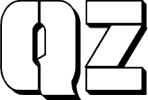Landfill
Landfill: Notes on Gull Watching and Trashpicking in the Anthropocene by Tim Dee. Copyright 2018, first printing February 2019.
I've read a bit about garbage, most recently Waste and Want by Susan Strasser (1999, but apparently used as a textbook, so easy to find new), so I thought this might be good to get some fresher information. The title, and subtitle, certainly pulled me in.
No. This is a British author writing a lot about his personal experiences, often as a reporter following more serious bird watchers than him. There are, it seems, a fair amount of bird watchers who specialize in watching sea gulls. In many cases these people hang around landfills and transfer stations because the gulls like the easy pickings.
Every chapter is essentially a self-contained essay with at least some tangential connection to gulls. There's one that compares and contrasts Hitchcock's The Birds to the original short story, with some attention devoted to the gulls in each for example. It's not what I wanted, but it's not a bad book.
When I found this in a bookstore (the famous "City Lights Books" in San Francisco, which I was visiting with some out-of-town house guests), I was drawn to the title and picked it up to read a couple of pages from inside. I happened upon chapter eight "London Labour and London Poor". This is one of the least gull-ish chapters, but also one of the most interesting to my tastes.
That chapter is about Henry Mayhew's three volume 1851 (based on 1840s
work writing a newspaper column; volume four came out 1862)
London Labour and the London Poor (at
and
but
apparently no volume four).
Mayhew interviewed and wrote about the most marginal people of the time.
The excerpt that made me buy the book:
Trash has a deep and determing place in Mayhew's cosmology. Waste management, in its widest sense, is vital to the story. This begins with the lowest class (Mayhew calls them low but was clearly sympathethetic to such people). The endeavoured to eke out scraps for a penny or two from what others had decided was useless. Contemplating suc lives and such labour makes Mayhew ask big questions. When do objects — or people — cease to have value?
There are dustment in Mayhew — men in the vanguard of professional waste collection. But they were far outnumbered by informal rubbish collectors. On these people Mayhew performs a kind of rescue anthropology. He describes them as if they were members of a ramshackle federation:
- Bone gubbers and rag-gatherers
- Pure-finders
- Cigar-end finders
- Old wood gatherers
- Dredgers, or river finders
- Sewer-hunters
- Mudlarks
- Dustmen, nightmen, sweeps, and scavengers
"Pure" is dog shit. Its name alone indicates our classificatory anxiety about its status. It was sold to tanneries, where it was used to cleanse and purify leather. In London, 200 to 300 men were "engaged solely in this business." A covered basket and a glove were required, though many dispensed with the glove, "as they say it is much easier to wash their hands than to keep the glove fit for use." There were even those who worked fakes and passed "mortar" off as pure.
That's great reading. The connection to gulls for this chapter? How the presence of so many and so varied human trash pickers squeezed the gulls out of the easy trash-pickings niche.
 qz thoughts
qz thoughts